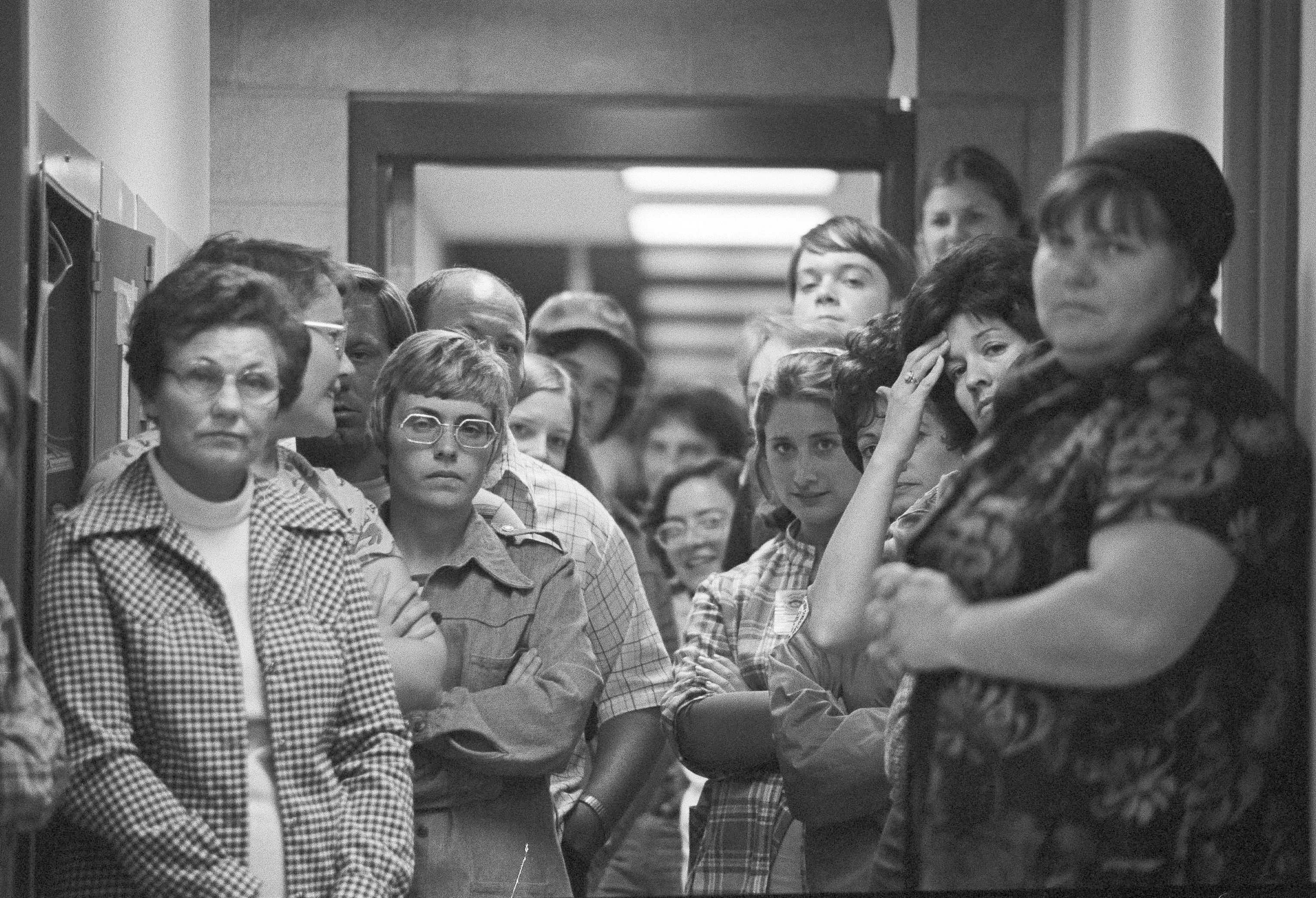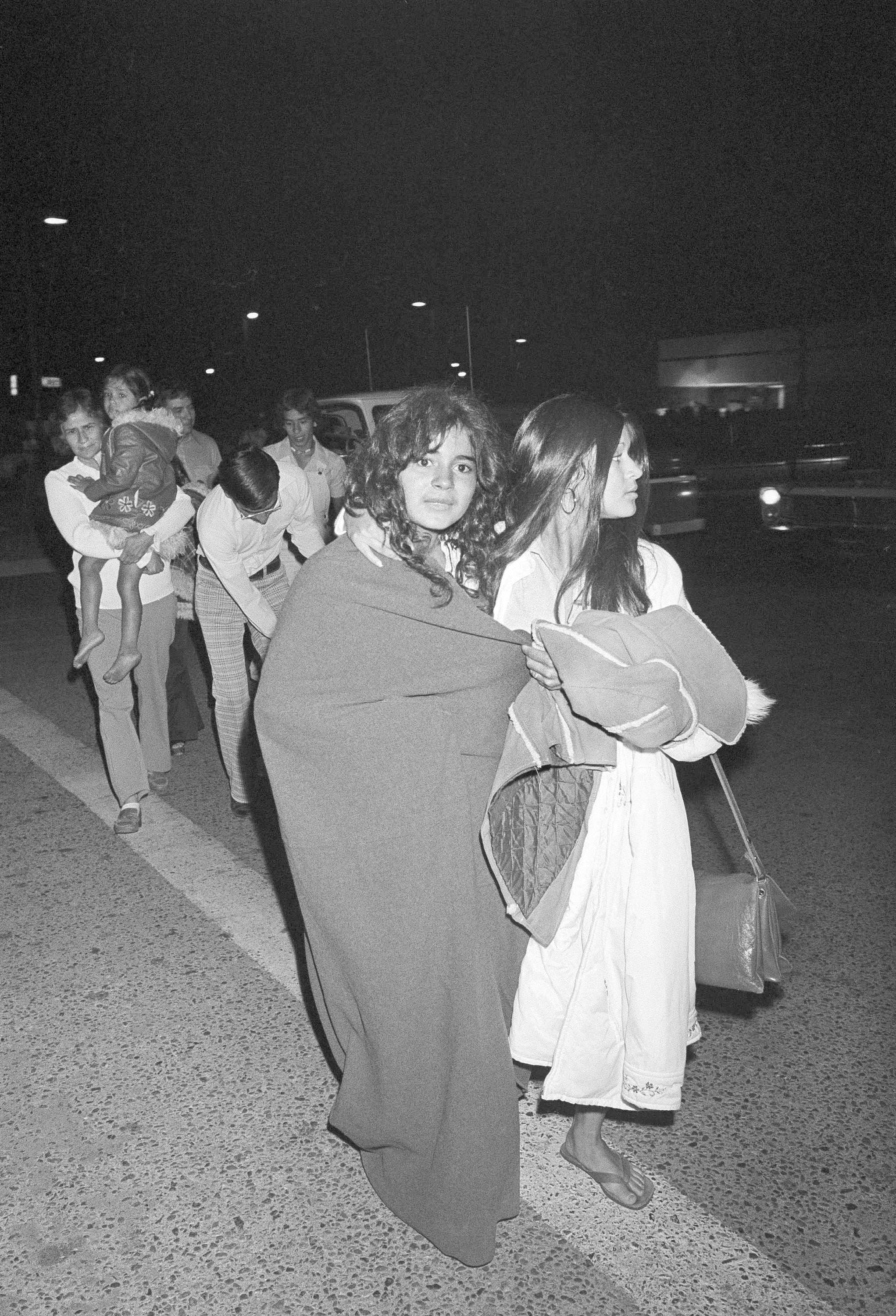Frederick Woods abducted 26 children and buried them alive. 46 years later, he’s set to walk free
Frederick Woods is the last of the three kidnappers still incarcerated

After 17 unsuccessful attempts, a California man who kidnapped 26 children on a school bus in 1976 has been recommended for parole.
When Frederick Newhall Woods and two other gunmen hijacked the school bus in Chowchilla, California, it was considered the biggest kidnapping in US history.
After hijacking the bus, which returning from a summer field trip at the Chowchilla fairgrounds swimming pool, Woods and his friends James and Richard Schoenfeld transferred the 26 children and their driver into vans and drove them 12 hours away in the dark to a location where, CBS News reported, they were held captive underground in a truck trailer.
Woods and the Schoenfelds wanted a $5m ransom for the safe return of the children to their families, but their plan quickly went awry. First, jammed phone lines meant that the kidnappers couldn’t communicate their ransom demand. Then, after some 16 hours, bus driver Ed Ray and some of the older children in the group dug their way out of the trailer while the kidnappers slept and led the group to safety.
Now Woods, who was 24 when he committed the kidnapping, has moved one step closer to leaving prison. Though he has been recommended for parole, Gov Gavin Newsom will have the opportunity to refer the case to the full parole board for their review if he so chooses. He cannot unilaterally reverse the parole decision, because Woods was not convicted of murder.

For the victims of the 1976 kidnapping, the possibility of Woods being released from prison is complicated. Multiple survivors support Woods’ parole, while others oppose it.
Though none of the victims of the kidnapping sustained life-threatening physical injuries, the psychological effects of being taken hostage at gunpoint and then kept underground for nearly 20 hours have been harrowing for many.

“I’m 50 years old, and I can have an anxiety attack over getting in the car with my husband,” survivor Jennifer Brown Hyde told Fox News earlier this year. Another survivor, Darla Neal, told CNN in 2015 that she deals with crippling anxiety to the point that she “had to leave work.” she said.
“I tell myself I should be able to shake this off and deal with it,” Ms Neal said. “Yet here I am, a mess.”
The kidnapping, which was the subject of massive media attention when it happened, has resurfaced in popular culture in recent years through CBS and Fox television specials.
The three men were arrested in the weeks following the kidnapping and were initially sentenced to life in prison without parole, but an appeals court later changed the sentences to make the trio eligible for parole. Richard Schoenfeld was paroled in 2015; James was paroled three years later.
Woods, now 70, is the only member of the kidnapping group still incarcerated at this time. At a parole hearing held online last week due to Covid-19 safety precautions that featured testimony from multiple survivors, Woods said that he is a changed man.

“I was 24 years old,” he said. “Now I fully understand the terror and trauma I caused. I full take responsibility for this heinous act.”
Woods has spent the vast majority of his life in prison, where his disciplinary record reportedly includes citations for running an unauthorised gold mine, a car dealership, and a Christmas tree farm. According to his attorney, however, he has not faced any disciplinary action since his last parole hearing in 2019.
Woods is an unusual prisoner in another way: he is believed to have inherited a massive amount of money from his wealthy parents, claimed in one court filing to be around $100m. It is possible that the money has helped finance some of Woods’ prison activities. He has married three times during the period of his incarceration, and he has also purchased a mansion nearby.
Despite the significant wealth of their families, James Schoenfeld told CBS that he and Woods were in serious debt at the time of the kidnapping and that the crime was financially motivated.

“We needed multiple victims to get multiple millions, and we picked children because children are precious,” Schoenfeld said. “The state would be willing to pay ransom for them. And they don’t fight back. They’re vulnerable. They will mind.”
While James and Richard Schoenfeld had success with the parole board last decade, Woods — despite his many attempts — had not had success until this year. CBS reported that in previous parole hearings he was “evasive, unable or unwilling to follow prison rules and fail[ed] to acknowledge the severity of his crime”.
Over the years, there have been other troubling reports about Woods. One was that he kept the two vans he and the Schoenfelds used to transport the children and their driver to Livermore, California in the expectation that the notoriety of their crime would make the bus increasingly valuable.
Now, after nearly a half-century behind bars, he is on the brink of freedom.
